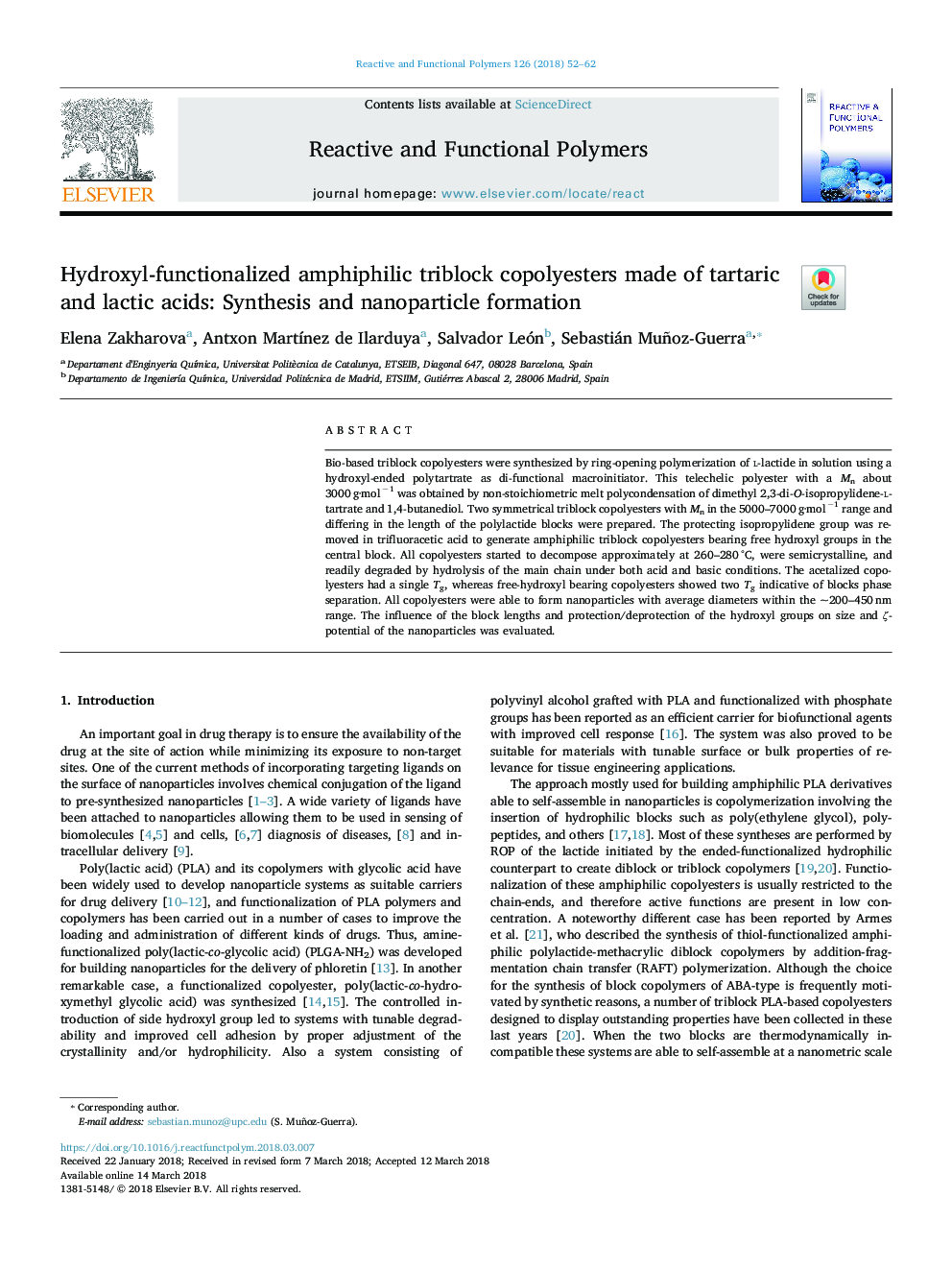| Article ID | Journal | Published Year | Pages | File Type |
|---|---|---|---|---|
| 7826294 | Reactive and Functional Polymers | 2018 | 11 Pages |
Abstract
Bio-based triblock copolyesters were synthesized by ring-opening polymerization of l-lactide in solution using a hydroxyl-ended polytartrate as di-functional macroinitiator. This telechelic polyester with a Mn about 3000â¯g·molâ1 was obtained by non-stoichiometric melt polycondensation of dimethyl 2,3-di-O-isopropylidene-l-tartrate and 1,4-butanediol. Two symmetrical triblock copolyesters with Mn in the 5000-7000â¯g·molâ1 range and differing in the length of the polylactide blocks were prepared. The protecting isopropylidene group was removed in trifluoracetic acid to generate amphiphilic triblock copolyesters bearing free hydroxyl groups in the central block. All copolyesters started to decompose approximately at 260-280â¯Â°C, were semicrystalline, and readily degraded by hydrolysis of the main chain under both acid and basic conditions. The acetalized copolyesters had a single Tg, whereas free-hydroxyl bearing copolyesters showed two Tg indicative of blocks phase separation. All copolyesters were able to form nanoparticles with average diameters within the ~200-450â¯nm range. The influence of the block lengths and protection/deprotection of the hydroxyl groups on size and ζ-potential of the nanoparticles was evaluated.
Related Topics
Physical Sciences and Engineering
Chemistry
Organic Chemistry
Authors
Elena Zakharova, Antxon MartÃnez de Ilarduya, Salvador León, Sebastián Muñoz-Guerra,
